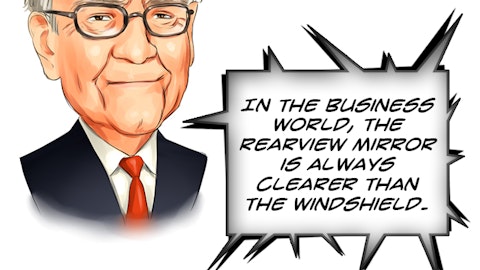Activist investors can be a good source of investment ideas. Given the usually large stakes that these hedge funds amass in a particular stock before launching an activist campaign, their interests are generally aligned with other shareholders. They can be a thorn on the side of the company management teams that they target, but the actions they seek, whether it is returning more capital to shareholders or selling off certain businesses or the entire company, are generally beneficial to the stock price.
Staples Inc. (NASDAQ:SPLS) has been a popular stock among hedge fund managers, with the likes of Ric Dillon of Diamond Hill Capital, David Costen Haley of HBK Investments and Eric Mindich of Eton Park Capital purchasing shares during the fourth quarter of 2013. They join other shareholders of the specialty retailer, such as Richard Pzena of Pzena Investment Management, Russell Hawkins of Hawkins Capital and Daniel Bubis of Tetrem Capital Management. In addition to hedge funds, insiders have also been active in the stock, with its Chairman and CEO Ronald Sargent, who is also the company’s largest shareholder, recently disclosing additional purchases of 8,500 shares.
Staples Inc. (NASDAQ:SPLS) is a $7.9 billion market cap company that operates office products superstores. It sells and delivers office products and services directly to businesses and consumers through its Staples.com and Quill.com Websites, as well as through retail stores, contract sales force, and direct mail catalog business. The company operated approximately 2,200 stores worldwide, including around 1,900 stores in the U.S. and Canada.
The shares have come under pressure recently after the company, along with a disappointing quarterly earnings report, announced plans to close up to 225 stores in North America over the next two years (on top of 40 closures in 2013). In an effort to improve profitability, management also initiated a multi-year restructuring plan that is expected to generate $500 million of annualized pre-tax cost savings by the end of 2015. Similar to other retailers, Staples has faced increasing competition from online shopping (despite being the second largest eCommerce player behind Amazon.com Inc. (NASDAQ:AMZN)), reduced traffic at brick-and-mortar stores and a lack of spending growth among its business and consumer customers. This has led to negative same store sales growth over the past several years, a trend that the company does not expect to reverse in the near-term.
Activist investors have been busy in the office supply space, with Jeffrey Smith of Starboard Value taking a 15% stake in Office Depot (NYSE:ODP) in 2012 and pushing for changes to its board. Smith, along with two of its nominees, eventually joined the board last year. Subsequently, in November, Office Depot and rival OfficeMax Inc. merged to become a stronger competitor in a weaker environment.
Staples Inc. (NASDAQ:SPLS) trades at a forward EV/EBITDA multiple of 5.3X, in-line with its peer group of specialty stores. Its profit margins and free cash flow generation are stronger than average, but top-line growth expectations are negative for the foreseeable future, alongside its peers. Staples also has a stronger credit profile, with the only investment grade rating among its specialty retailer competitors. However, the company operates in an industry with weak fundamental prospects, necessitating further restructuring as well as efforts to improve its online capabilities. Should these plans not generate the expected benefits, it will not take long for another activist investor to take a stake in the company and push for further action, whether strategic or financial in nature.
Disclosure: none
Recommended Reading:
The Internet’s 5 Biggest Online Stores
Staples, Inc. (SPLS): A $500 Investment in This Office Supply Stock Could Yield a 60% Return






